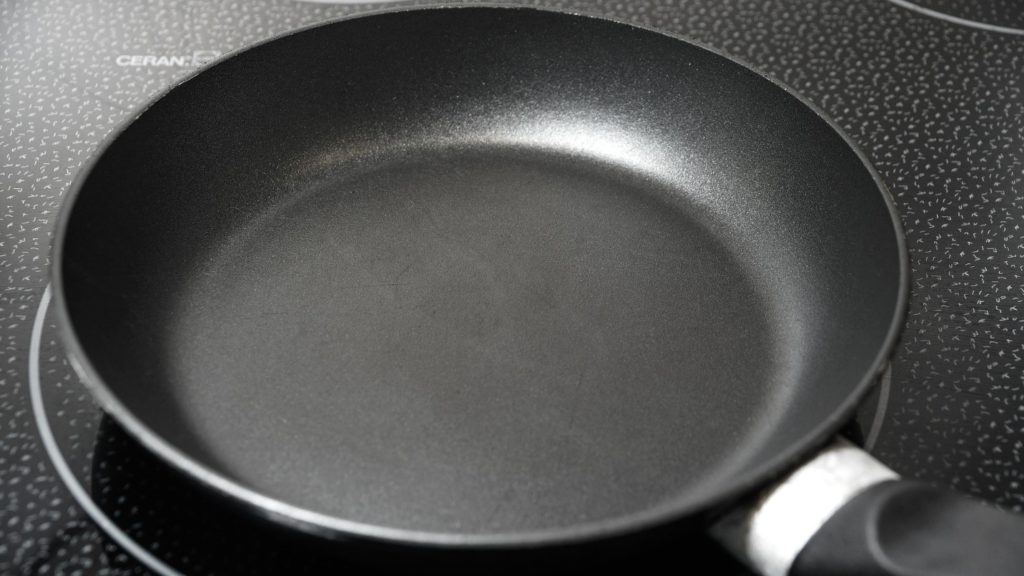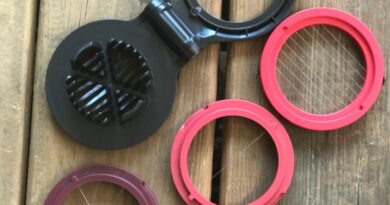
Scanpan Cookware’s Pros and Cons: Things to Consider Before Buying
Non-stick surfaces have been used for cooking purposes for centuries. Historians estimate that non-stick pans can be traced 3,000 years in the past when Mycenaean Greeks used ceramic girdles with tiny holes to make bread.
But the first modern non-stick pans, as we know them now, were made using a layer of Teflon, which was accidentally invented by chemist Roy Plunkett in 1938 while working for the DuPont company. This substance, which was quickly patented by the company, was discovered to have a high resistance to corrosion. This gave birth to an entire new industry, with SCANPAN Cookware, the biggest manufacturer of pressure cast aluminum cookware in Europe, establishing in 1956 in Demark. Since then, non-stick pans have become ubiquitous.
Obviously, being one of the most important providers of cookware in the world, you might be wondering if their products are really worth it. Here are a few things to consider before buying their products. 
Eco-Friendly
One thing that will be truly appreciated by people concerned with the environment is the fact that Scanpan products are eco-friendly. In fact, Scanpan is the first manufacturer of non-stick kitchenware licensed to be PFOA free. Because they require little fat or oil to cook, Scanpan products are completely safe for the environment.
In-House Building Formula
Scanpan created a special in-house formula for their products. While some of their products do contain a layer of Teflon, most Scanpan units have a specially designed, patented coating surface composed of ceramic titanium. This means that they are resistant to abrasions and are utensil safe. In other words, these pans will not suffer any scratch marks from forks, knives or any other kitchen utensils made out of metal.
When it comes to materials, for the construction of Scapnpan Classic Skillets, the company decided to use pressure cast aluminum. Pressure casting is a process in which air pressure is used to force the metal through the gating system. Scanpan uses this manufacturing process at its fullest potential, applying over 200 tons of pressure to mold the liquid aluminum alloy into their famous pan shapes.
Thanks to pressure casting, Scanpans have flat bases, allowing for flawless heat distribution and retention, which in turn ensures fast and uniform heating.
Easy To Clean
Like most non-stick pans, Scanpans are incredibly easy to clean with the simple use of a paper towel. If you are having trouble eliminating any bits of food that are stubbornly sticking to its surface, then the old sponge and soap will do the job just as well. Many specialized websites, like TheKitchenAdvisor.com, recommend avoiding aerosol sprays as they could damage the cooking surface.
But thankfully, people who do not like washing dishes will appreciate the fact that Scanpans are dishwasher friendly. But again, this is only for extreme scenarios, because most of the times a simple wipe will do the trick.
Safe, Healthy and Efficient
This particular pan model can be used on a variety of cooking surfaces, from gas, electric, to ceramic. However, due to its construction, it has a tendency to get very hot, so make sure to wear a pair of cooking mittens so you will not hurt yourself.
But under normal cooking conditions (a.i. meals that do not take a long time to prepare and do not go over the 260 C threshold), the handles are safe to grab barehanded. Speaking of handles, they are riveted directly into the pan, so you do not have to worry about spilling oil or other ingredients on yourself due to looseness.
Scanpans can be used to prepare and cook a wide variety of meals and ingredients, without damaging the structural integrity of the product. Eggs, for example, will not only be ready in a timely fashion but will not stick to the surface of the pan.
Furthermore, since Scanpans have very good heat distribution, you can cook meat without worrying that you will have to scrub bits and pieces off of the pan afterward. Before putting the pan on the stove, make sure to spread the oil around its surface to ensure the coating will last.
However, it is worth noting that Scanpans can’t be used on induction stoves. Whether or not this can be considered as a downside depends on personal preference.
Conclusion
Scapan has a well-deserved reputation of delivering durable, top quality products that can handle a wide variety of cooking tasks without suffering any damages. Their innovative technology provides their products with even heat distribution that allows the user to cook meals in a timely fashion and clean them easily. Some people might be put off by their high prices ($100-$200 per unit), but the aforementioned elements, coupled with lifetime warranties, make the company’s products a worthwhile investment that you will surely not regret.









